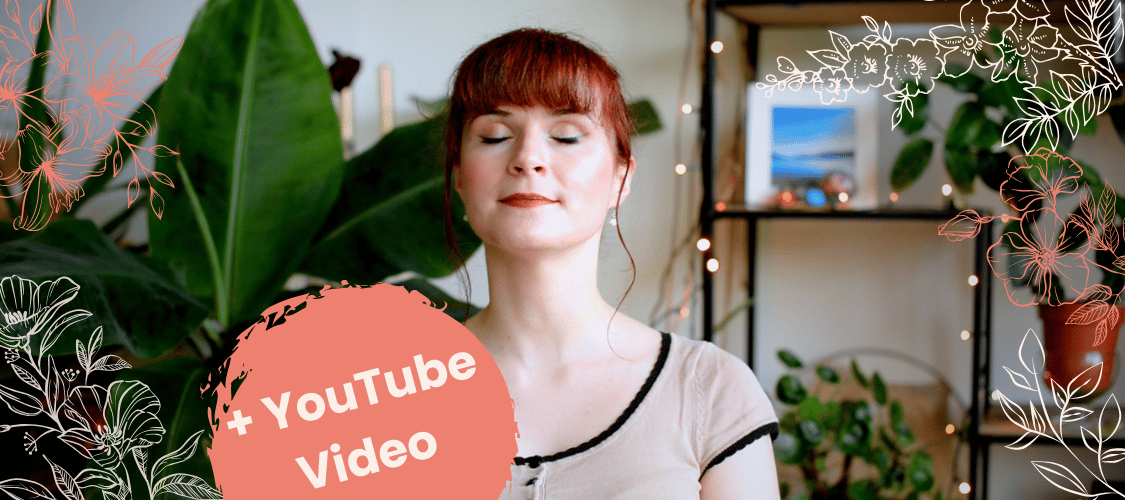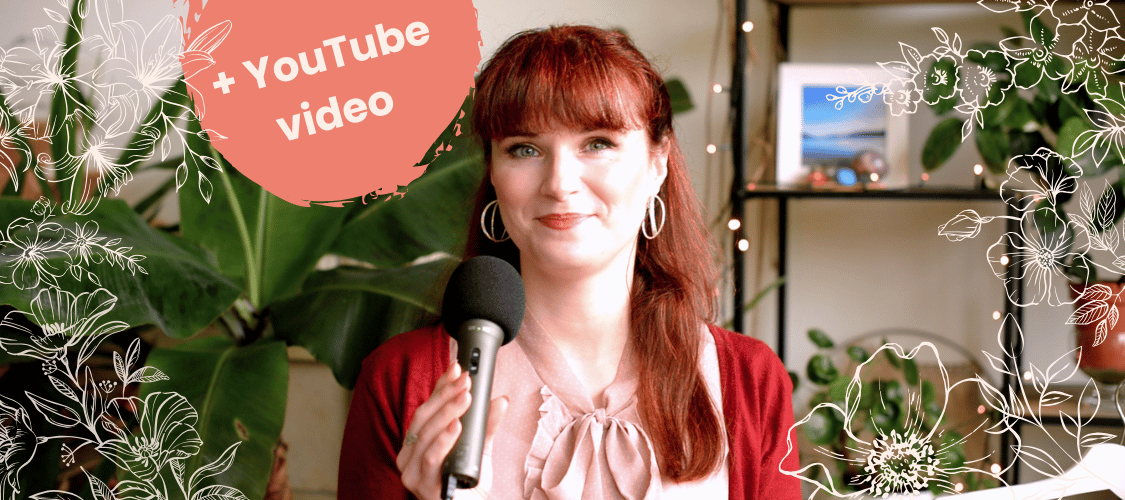Safety instructions on the plane always state that you should secure your own oxygen mask before helping others. Even children! The welfare of those around you relies on your well-being also. This is why you must prioritise taking care of yourself first before you can assist others the best you can. Let’s explore how to be your own best friend.

Self-love is a verb
We live in a society that rewards deeply self-centred, outgoing, extraverted, result-driven attributes. Nevertheless, we are reproached for exhibiting a touch more self-care and setting our boundaries as if such conduct is a bad thing.
I’m sure we all feel a sense of guilt (even if only slightly) when declining a friend or family member’s request in favour of tending to our own needs. However, if you opt for Christmas travels over spending the time with your family, you might be labelled as selfish, even if not expressed outright.
Read more about how self love changes your life for the best.
What is self-love anyway?
To me it’s a verb. It’s a set of actions that will enhance my well-being, foster a sense of inner calm. It’s generating an overall feeling of being pampered and cared for. It’s me safeguarding my boundaries, being in the moment with myself. Pursuing what feels good and authentic to me at present.
Yes, it’s also warm bubble baths, sporadic facemasks and a range of other grooming rituals I engage myself in to take care of my skin and body.
It’s me selecting the best foods that will nourish me. It’s my self-discipline that leads me to walks, bicycle rides, yoga classes or to the gym, where I move my body.
It also extends to buying myself an ice-cream once in a while when I feel like it. It’s me going to the cinema solo for a date with myself.
Are these actions selfish? Absolutely not. And if someone tells you otherwise, it means they yearn to feel that way towards themselves, but are scared of being judged.
Alternatively, they may have extracted more from you before you adopted this way of thinking. Now your boundaries mean they won’t get as much. In such instances I would simply smile and say that I did not promise anything to anyone. That I reserve the right to change my mind at any point.
8 reasons why you should be your closest ally
Perhaps you already have many best friends and the entire social support network. However, the paramount love you need should come directly from your own inner self. Cultivating your own happy life will give you a sense of control and render you a magnet for others. Your joy is contagious and people cherish this energy as a dynamic force in their own lives.
Here are also 18 signs you are your own best friend.
Here is why committing to being your own bestie holds such huge value:
1. Setting your standards
Giving yourself the best treatment and support establishes a benchmark for how you wish to be treated by others. It’s when you treat yourself so well that any situation falling below this standard becomes one from which you wish to distance yourself. Your tolerance for toxic, B.S. relationships with men and friends will diminish and you will create more space for peace, affection and gratitude in your life.
2. Knowing your value
When you love yourself more and treat yourself oh so nicely, you begin to develop a self-appreciation that resonates with others. You start to see your value and, in result, your self-perceived value increases. You know what you deserve and you go for it, instead of decreasing your value to what others want to pay for you to align with their expectations. Pay not with money, but with time, affection and understanding.
For instance: you have deep affection for a man romantically, but he chooses to end it with you and suggests remaining friends. You wanted a relationship, but he offered only friendship. It’s like when you offer a luxury car for sale at 40k for it, yet someone offers 20k. The answer is a resounding ‘no’. You know your value and there’s no bargaining.
3. Decreased feeling of loneliness
We often believe that loneliness is cured by the company of other people, yet the reality is quite the opposite. In truth, loneliness is cured by understanding that we don’t need people to be happy. Once you realise that you actually don’t need people, the enjoyment of others’ company deepens and you cherish it more. In other words, when you genuinely relish your own company as your friend, feelings of isolation and solitude disappear.
Consequently, your expectations of others diminish, alleviating the pressure or frustration they might otherwise feel to contribute to your happiness. They are simply an addition. Because others are just extra for you. A cherry on top of your scrumptious, complete cake of your own existence.

4. Less active ego
By supporting yourself you also attain more tranquillity and start to notice this nasty, pesky inner voice that whispers negativity to you. It’s your ego. By silencing your ego, your judgement becomes more impartial and less clouded. When you engage in complaining, you feed your ego. Complaining is like telling yourself that you are right and others are so wrong. Your ego thrives on such validation and grows stronger on this kind of stuff.
5. 24/7 support team available
When you’re your best friend, you’re always there for yourself. You have a perpetual troupe of cheerleaders within you. You can pat yourself on the back at any moment, reassuring yourself that you are safe. And here for yourself. That you’re doing really well.
6. Improved relationships with others
You understand that making mistakes is part of life and you do the best you can at the given moment, with the available information you have at the given time. Then, you start to see this in others also, which makes them more understood and accepted and free from judgement. Therefore, your intimate relationships start to benefit from this shift as well.
7. Easier to hold your own boundaries
This aligns well with setting your standards and recognising your worth. Once you know how much your time is worth and how much you bring to others, you naturally gravitate towards upholding your boundaries when in interactions with others, even at work. Given the array of ways to allocate your precious and limited resource that is time, you make these choices wisely.
8. Someone to take care of you
When I travel, I always prepare myself a meal to go. Packing a home-cooked meal in a lunchbox, sliced strawberries, a granola bar and an apple in my backpack always makes me feel like I’m so well taken care of – a thoughtful gesture from my past self. I also enjoy preparing for my return by tidying up my flat so that I come back from travels to an inviting living space. This simple act makes me feel special as though another person had done it for me. Well, in a way, they have – the Marta of the past ?
You’ve got a friend in me
Now that we see why it’s good to be your own best friend, the path to achieving this naturally unfolds itself. Be good to yourself, cultivate understanding, forgive yourself and it will be highly rewarded by your overall mood and comfort.
Through understanding your personal needs and providing them to yourself, you become more self-aware. Knowing what your desires and needs are is invaluable in relationships, because it will be easier to communicate them to others. It greatly enhances relationships with others when you literally hand over an instruction manual on how to treat you to others.
I find it very empowering to know that I am an architect of my own needs and happiness. I feel like this is also something that alleviates the pressure I might impose on others to make me happy and entertain me. And now you also know how to be your own best friend.
I know I can always go out there and spend some time with my friends to colour my life, but I also find so much joy in solitude. These moments of self-discovery hold a special place in my heart.
Conclusion
In a world where prioritising others is often expected, the principle of securing your own oxygen mask before assisting others, as emphasised during aeroplane safety instructions, holds a profound lesson. We need to dive into the transformative journey of how to be your own best friend, underlining the significance of self-love and nurturing.
Self-love is a tangible force, driven by intentional actions that increase well-being and authenticity. We need to challenge the notion that self-love is selfish and emphasise how it encompasses preserving boundaries, embrace the present, and nurture oneself. Thoughts and emotions are interconnected, and we can reshape their mental landscape.
We explored eight compelling reasons for self-friendship, and now we know how to set personal standards, recognise inherent value, and dismantle feelings of loneliness. This evolution not only cultivates resilience but also enriches relationships and empowers the practice of setting healthy boundaries. Let’s celebrate the transformational power of self-compassion, where cherishing moments of solitude becomes an evidence for deep self-affection.
What is your favourite way to support yourself?
Recommended next post to read:
10 powerful steps to radical acceptance
WHAT TO DO IF A GUY ISN’T INTERESTED IN YOU
10 THINGS MEN LOVE IN WOMEN THAT WILL ACTUALLY IMPROVE YOUR LIFE
Related and recommended books:









Pingback: 10 powerful steps to radical acceptance - Rise and Thrive for Women
Pingback: How to positive self-talk for a successful life - Rise and Thrive for Women
Pingback: How to become your own dream girl - Rise and Thrive for Women
Pingback: How to be a more confident woman - Rise and Thrive for Women